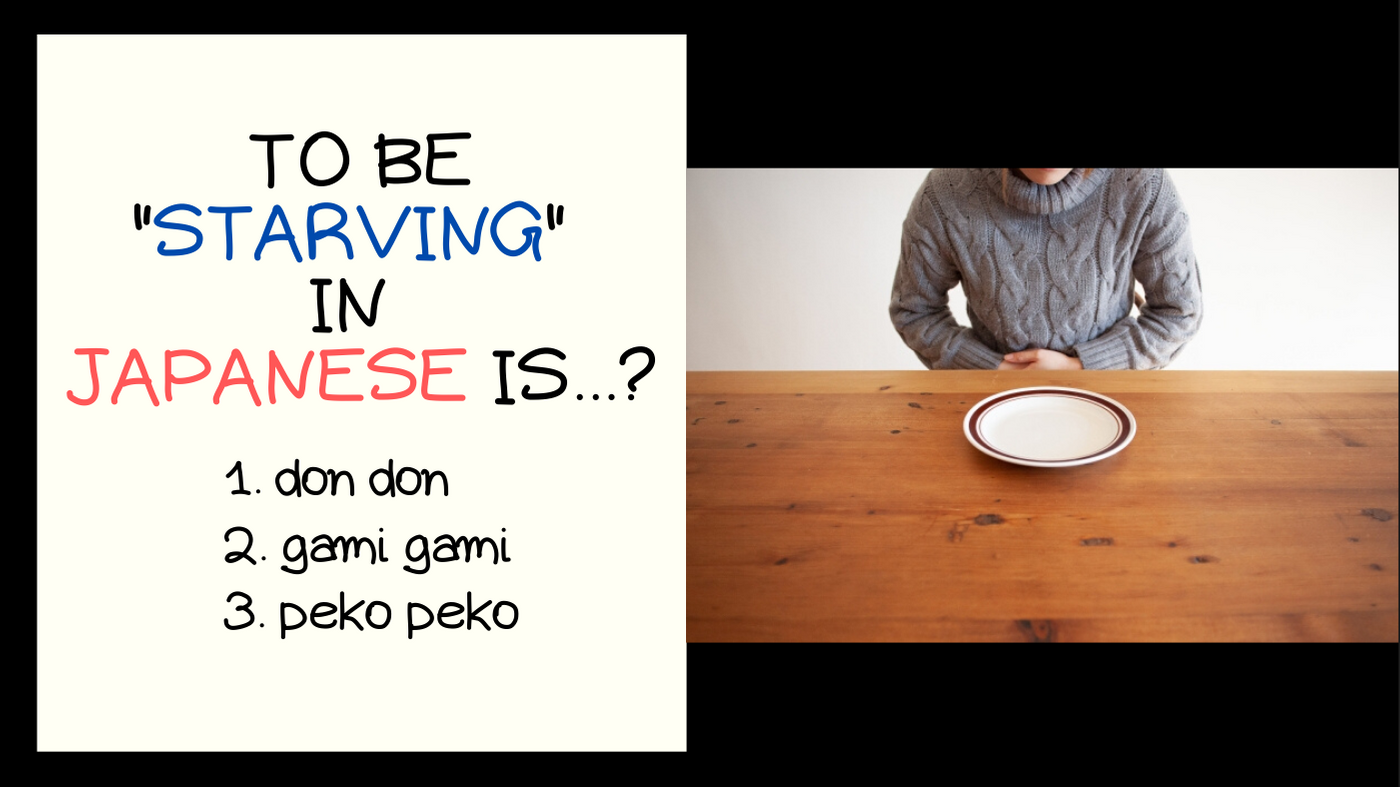Weirdly Pronounced Words
It's hard to imagine why the Japanese for "very hungry" has such odd pronunciation!
There are a lot of funny "onomatopoeia" ぎおんご ("giongo" : words that imitate sounds) and "mimetic words" ぎたいご ("gitaigo" : words that imitate actions) in Japanese. This word is one of them.
The verb to 'be dented'
This word began to be used in the Meiji era (1868-1912). It was originally pronounced へこへこ "heko heko". The word is assumed to have come from the verb へこむ "hekomu" meaning "to be dented". This probably stems from the fact that hunger can almost make you feel like your stomach has become dented.
So, have you figured out the answer yet? Yes, the correct answer is (3) "peko peko"!
It is believed that "heko heko" transformed into "peko peko" as time went by.
How is it Written ?
When we write "peko peko" in Japanese, we don't use kanji. It is written in hiragana "ぺこぺこ" or katakana "ペコペコ". In general, we use katakana to emphasize unusual or funny pronunciations. Using katakana gives it a little more emphasis!
How is it Used?
It's very simple! You can use peko peko like this:
おなかがペコペコです! (Onaka ga peko peko desu!)
I'm starving!
literally 'my stomach is caving in' means 'I'm starving'!
"Onaka" means stomach or abdomen, "ga" is a particle indicating the subject, "desu" is equivalent of the verb "to be".
It's more natural to use "peko peko" within a sentence, than alone.
If you want to say it more casually, just remove the last word "desu".
For help with informal speech, you can learn more in the Premium content of Japanese learning App « noriko » !
おなかがペコペコ! (Onaka ga peko peko!)
I'm starving!
There is also a shortened version of the sentence. This is more casual than おなかがペコペコ (Onaka ga peko peko). You can use this version with your friends or family.
はらペコ! (Hara peko!)
I'm starving !
'Hara' is one of the words that mean stomach. Instead of repeating 'peko', you can just cut it to once and combine it with "hara".
Now, it's time for me to finish writing this blog and prepare my dinner. Because はらぺこ (Hara peko) 😆!
Source : Nakami Yamaguchi, Onomatopoeia and Mimetic Word Dictionary (Kōdansha, 2015)


コメント